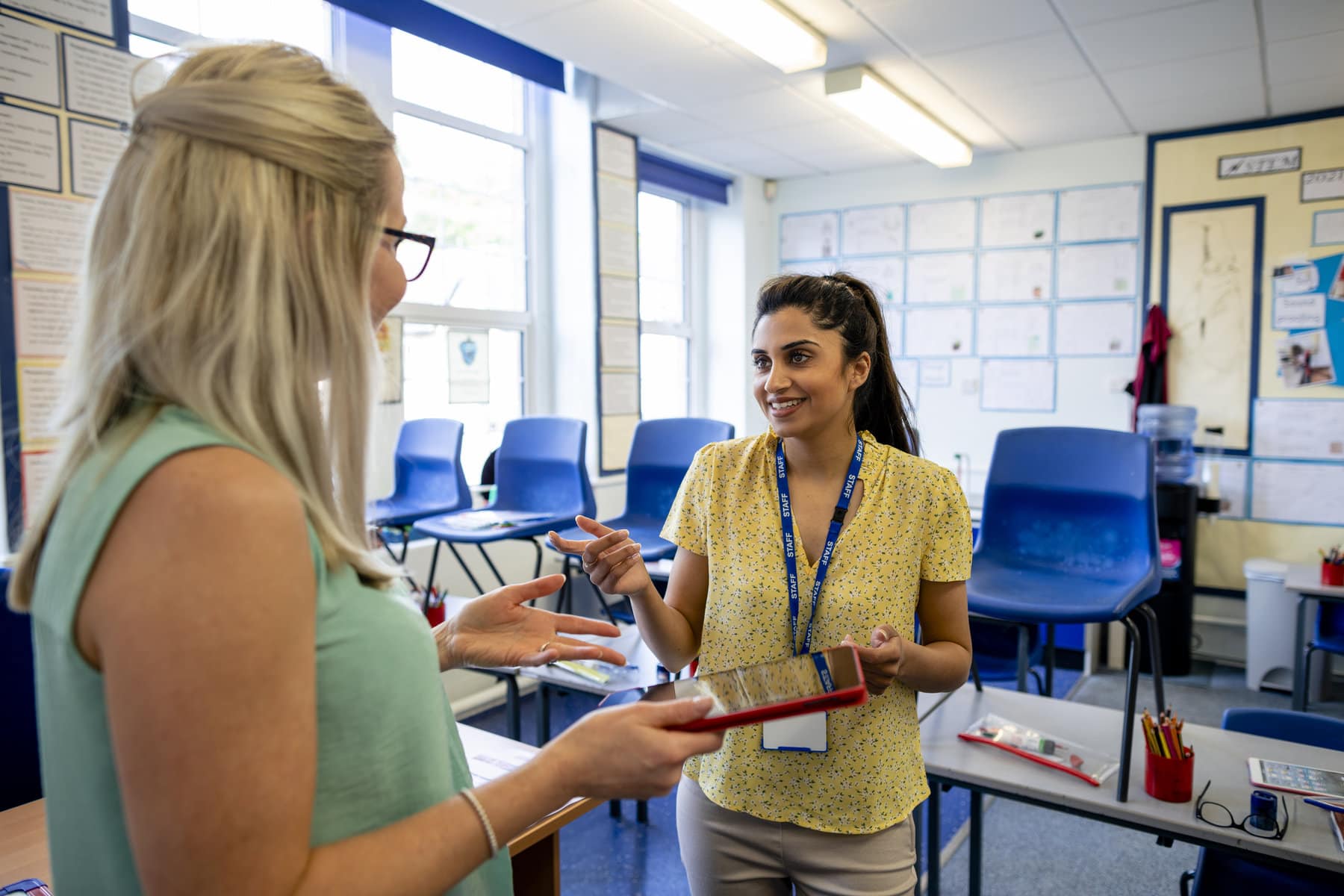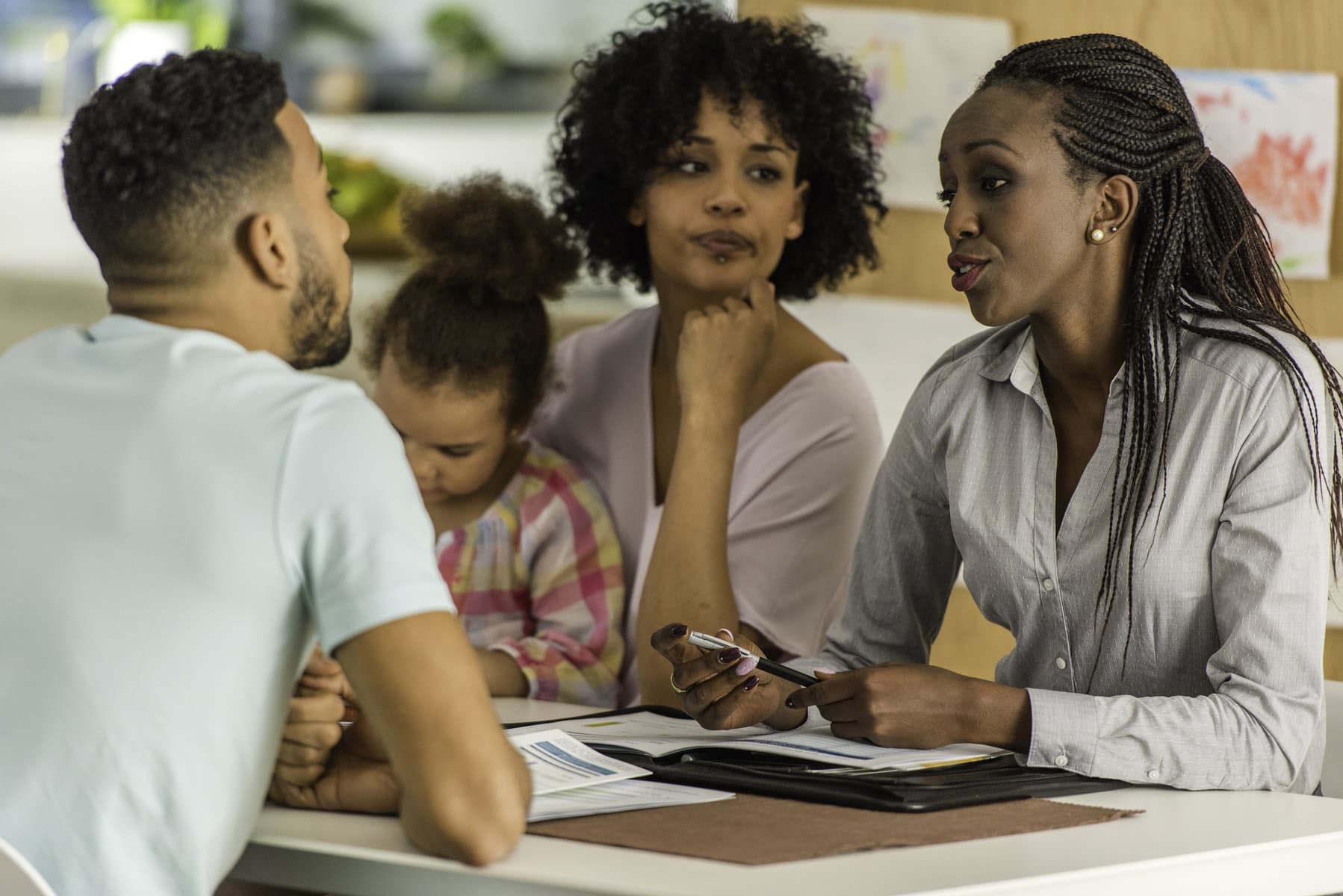In connection with the Science of Reading Virtual Summit, Waterford is sharing an article series exploring the science behind how students learn to read and what administrators can do to guide school and classroom strategies.
Sign up for the free summit to learn research-based strategies from early education experts including Julie Christensen, Vice President of Curriculum at Waterford.org. Plus, find upcoming and on-demand video series led by early education experts through the Webinar Library, featuring topics chosen with administrators in mind, like:
- Impactful Family Engagement Made Easy
- Understanding the Six Literacy Strands
- Improving Student Outcomes with Professional Services
School districts across the country are increasingly turning to the science of reading as they plan their early literacy curriculum. Educators appreciate that it aligns with what researchers know about how the brain learns to read. Yet you might be wondering why it’s worth planning professional training opportunities on the science of reading for your educators?
Read on to learn how training on the science of reading can transform your school district. Then, find strategies for turning training sessions into daily practice.
Science of Reading: Benefits of Training Teachers
 Training teachers on the science of reading can equip them with a deep understanding of how students learn to read and which skills to prioritize in their classroom instruction–like phonological awareness, phonics, reading fluency, and reading comprehension. This is especially valuable for teachers who did not receive instruction aligned with the science of reading as part of their teacher prep programs. According to the National Council on Teacher Quality, many teacher prep programs still do not provide teacher candidates with the information and skills they need to effectively teach their students to read.
Training teachers on the science of reading can equip them with a deep understanding of how students learn to read and which skills to prioritize in their classroom instruction–like phonological awareness, phonics, reading fluency, and reading comprehension. This is especially valuable for teachers who did not receive instruction aligned with the science of reading as part of their teacher prep programs. According to the National Council on Teacher Quality, many teacher prep programs still do not provide teacher candidates with the information and skills they need to effectively teach their students to read.
An understanding of the principles behind the science of reading can help teachers provide research-based, effective instruction for all students. The same instructional approaches are recommended for those who need more targeted intervention, such as students with dyslexia or auditory processing disorder.
As teachers become more knowledgeable about early reading instruction, they can also better engage families in their student’s education. Collaboration between educators and families provides students with the support they need to build literacy skills. Teachers who have received training in the science of reading can suggest targeted home learning activities (like these phonological awareness strand videos available in English and Spanish) so families understand and can help students strengthen the skills that need the most support.
Plus, the science of reading is not just a useful approach. In many states, it’s a required approach. In recent years, many states have either encouraged or explicitly required science of reading instruction in their school districts.
Planning Science of Reading Training Sessions for Teachers
 Before you consider professional development opportunities, research your state’s science of reading requirements. Specific laws and guidelines vary, which is why it’s important to familiarize yourself with the information on your state’s Department of Education website.
Before you consider professional development opportunities, research your state’s science of reading requirements. Specific laws and guidelines vary, which is why it’s important to familiarize yourself with the information on your state’s Department of Education website.
Once you know your state guidelines, hold a survey or all-faculty meeting on possibilities for your training plan. This will give you a sense of what teachers want to know about the science of reading, what they’ve learned before, and what format they prefer for professional development. You can also get a sense of what accommodations you’ll need to provide for busy teacher schedules, like online or independent learning options.
The science of reading is based on the latest research, so it’s important that training sessions are led by an expert. Collaborate with trainers who have experience with delivering instruction on what teachers should know about the science of reading and are informed on recent developments in the field. If you are unable to connect with a local expert, supplemental material by science of reading experts—like books, conference recordings, or on-demand webinars—can help you structure your event.
While the research itself is important to understand, include a focus on turning that research into real instruction. Incorporate practical, hands-on strategies that help educators apply what they’ve learned in the classroom. Suggestions for lesson plans, class activities, assessments, and student interventions guided by the science of reading can all help teachers.
Guiding School or District Programs with the Science of Reading
After you’ve held a teacher training session, the next step is to use what you’ve learned in everyday practice. These strategies can help your school or district not only understand how children learn to read but use it to build effective literacy strategies.
Use the science of reading to plan or update curriculum
Turn training into practice by building or updating literacy curriculum around the science of reading. What this looks like may differ for your district based on state requirements and specific needs. A great starting point is to make sure your reading curriculum incorporates key skills that lead to literacy development, including:
- Phonological awareness
- Phonics
- Reading fluency
- Reading comprehension & vocabulary
- Language concepts
- Communication
Provide ongoing coaching support in classrooms
Extend learning beyond the scheduled professional development time. Ongoing coaching support helps teachers convert what they have learned into daily instructional routines. Support and guidance with classroom implementation helps to solidify the learning and multiply your training investment.
 Encourage teacher collaboration and self-assessment
Encourage teacher collaboration and self-assessment
After the training, encourage teachers to keep collaborating on how they implement the science of reading in their classroom. Sharing successes, challenges, and strategies used can both motivate teachers and give them new ideas to try.
Advise teachers to assess what impact the science of reading strategies have on their students as well. That way, they can keep track of what’s working with their students and ask for guidance from colleagues on how to work through areas of growth.
Plan family and administrator training sessions
Don’t let your science of reading training stop with teachers. Consider offering training for families, administrators, and even school board leaders. Emphasize the importance that understanding how children learn to read can have when everyone is involved in your school’s community. With that knowledge, everyone can engage in a more informed way.
Continue seeking out professional development opportunities
The science of reading is a constantly developing field. Stay updated on the science of reading research through ongoing study, and share any resources you find insightful with your colleagues.
Waterford.org recommends the following science of reading books for independent study:
- Speech to Print: Language Essentials for Teachers by Louisa Moats
- Essentials of Assessing, Preventing, and Overcoming Reading Difficulties by David A. Kilpatrick
- Reading in the Brain by Stanislas Dehaene
Science of Reading Resources with Waterford
Train teachers and gain administrative insights on the science of reading with virtual training led by the experts! Waterford’s free Science of Reading Summit dives deep into the neuroscience behind how children learn to read, offering insights on effective school strategies and how to evaluate current practices.
Join the Summit for access to ten live sessions, on-demand recordings, and more resources:
- Early literacy skill fact sheets
- Ebook on latest research and best practices
Interested in training sessions personalized to your school or district needs? Waterford’s Professional Services team holds online and in-person training sessions on how to implement the science of reading in the school or classroom. Talk to a representative to learn more and plan a training session for your school.

